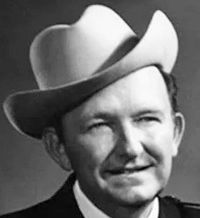A Quote by Octavio Paz
A work survives its readers; after a hundred or two hundred years, it is read by new readers who impose on it new modes of reading and interpretation. The work survives because of these interpretations, which are, in fact, resurrections: without them, there would be no work.
Related Quotes
The ear is the only true writer and the only true reader. I know people who read without hearing the sentence sounds and they were the fastest readers. Eye readers we call them. They get the meaning by glances. But they are bad readers because they miss the best part of what a good writer puts into his work.
Most readers look at the photograph first. If you put it in the middle of the page, the reader will start by looking in the middle. Then her eye must go up to read the headline; this doesn't work, because people have a habit of scanning downwards. However, suppose a few readers do read the headline after seeing the photograph below it. After that, you require them to jump down past the photograph which they have already seen. Not bloody likely.
Freedom without organization of work would be useless. The child left free without means of work would go to waste, just as a new-born baby, if left free without nourishment, would die of starvation.The organization of the work, therefore, is the cornerstone of this new structure of goodness [in education], but even that organization would be in vain without the liberty to make use of it.
O youth.......be assured that knowledge alone does not strengthen the hand......Though a man read a hundred thousand scientific questions and understood them or learned them, but did not work with them---They do not benefit him except by working.....Knowledge is the tree, and working is its fruit; and though you studied a hundred years and assembled a thousand books, you would not be prepared for the mercy of Allah the Exalted except by working.
I seem to have three categories of readers. The first is nonbelievers who are glad that I am reading the Bible so they don't have to bother. The second group, which is quite large, is very Biblically literate Jews. And the third, which is also very large, is Christians, most of them evangelical. The evangelical readers and the Jewish readers have generally been very encouraging, because they appreciate someone taking the book they love so seriously, and actually reading it and grappling with it.
A Hundred Years From Now Well a hundred years from now I won't be crying A hundred years from now I won't be blue And my heart would have forgotton she broke ever vow I won't care a hundred years from now Oh, it seem like yesterday you told me You couldn't live without my love somehow Now that you're with another it breaks my heart somehow I won't care a hundred years from now * Refrain Now do you recall the night sweetheart you promised Another's kiss you never would allow That's all in the past dear it didn't seem to last I won't care a hundred years from now * Refrain
I would give them (aspiring writers) the oldest advice in the craft: Read and write. Read a lot. Read new authors and established ones, read people whose work is in the same vein as yours and those whose genre is totally different. You've heard of chain-smokers. Writers, especially beginners, need to be chain-readers. And lastly, write every day. Write about things that get under your skin and keep you up at night.







































